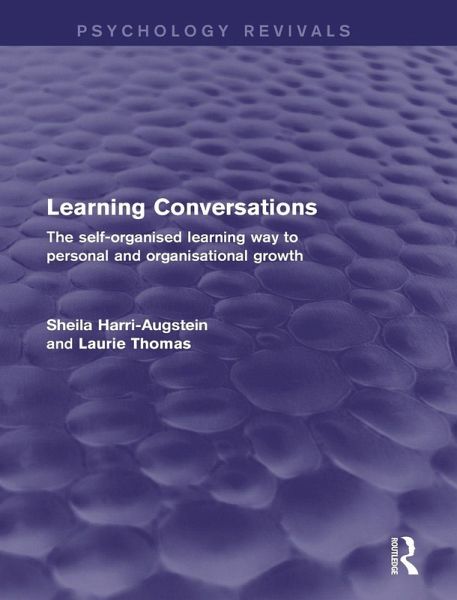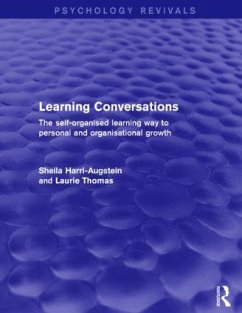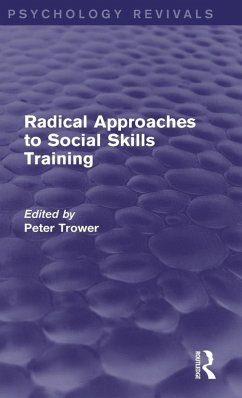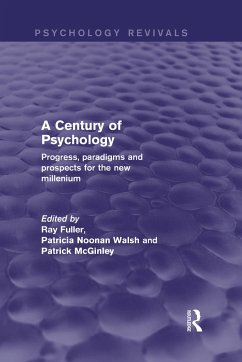
Learning Conversations (Psychology Revivals)
The Self-Organised Learning Way to Personal and Organisational Growth
Versandkostenfrei!
Versandfertig in 1-2 Wochen
222,99 €
inkl. MwSt.
Weitere Ausgaben:

PAYBACK Punkte
111 °P sammeln!
How Can You Improve Your Learning Capabilites? How Can You Enhance Your Potential for Change and Personal Growth? Most of us accept that education does not meet the needs of learners today, or their employers. This mismatch is a key reason why a high level of demotivated youth, as well as workers and managers remain unable to develop themselves. They have been other-organised and are unprepared for the world of work and the challenges of life. First published in 1991, this title offers a radical approach to human learning and personal change. Based on the reflective procedures of Learning Conv...
How Can You Improve Your Learning Capabilites? How Can You Enhance Your Potential for Change and Personal Growth? Most of us accept that education does not meet the needs of learners today, or their employers. This mismatch is a key reason why a high level of demotivated youth, as well as workers and managers remain unable to develop themselves. They have been other-organised and are unprepared for the world of work and the challenges of life. First published in 1991, this title offers a radical approach to human learning and personal change. Based on the reflective procedures of Learning Conversations, it enables a deep exploration of the learning process and allows individuals, teams and even whole organisations to create dynamic learning cultures capable of adaptive, constructive and continuing growth. Available again after some years this book is as relevant, if not of greater value, in our ever-changing society than when originally published.














